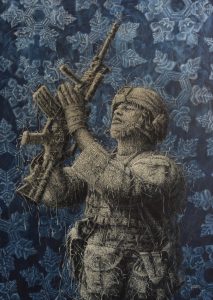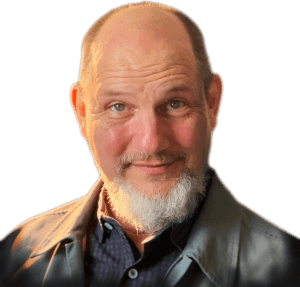Art as an Interruption
Artfields 2017 was, as always, an inspiring experience. Cate and I love going to Lake City, SC and talking about the meaning and role of art in our society. I strongly believe Artfields and the other mega award shows, like ArtPrize in Grand Rapids, MI, are an opportunity for artists to reassert their role as the conscious of society. But alas, it doesn’t always work out that way. Instead, these shows are careful never to encourage strong societal messages by awarding top prizes to controversial works. As my readers know, I am very interested in getting artists to step up to their former role as the mirror of society. One way to insure that doesn’t happen is to give an artist a nice award or tell all the participants how talented they are. If we want art to matter it has to not just be about talent and hard work. Unless the ideas resonate beyond the artist’s career, artists will forever be the sideshow of society, just another distraction competing in the twitter-sphere for attention. Artists need to become the front line in the war against the the dehumanization of society.

Alexi Torres series piece, won the top prize ($50,000), definitely puts a mirror to society, albeit a soft focus mirror. He is expressing what most people would agree is a noble sentiment, in a very unusual way. The figure is described as if it were made of wicker, a fragile medium, suggesting how fleeting and delicate our feelings of patriotism can be.
It’s a delicate balance, to be sure. Art that simply shocks us, loses the viewer, and whatever message the artist had is lost in the hot feelings it produces. Then there is the esoteric work, impenetrable by design, losing the viewer because the work talks down to them. And of course, there is occasionally work which lures us in with beauty, where all the visual elements line up to help the willing viewer enter another place, another paradigm. Sometimes beauty and craft conspire to interfere with the message as well. But for the most part, work in these shows seem to be speaking to some presumed expectation for something new and different, but somehow falling short of changing the world. So the jurors inevitably end up agreeing to award the most “interesting,” rather than the most truly mind-blowing artworks. I want my world to be interrupted by art. Calling an artist talented is like calling a protestor mentally ill. It’s a way of marginalizing their message.

Brittany Watkins’ was the only “walk-in” experience at Artfields this year. And it stood out enough to garner the second place ($25,000) award. Do I admire her vision? Of course! And the award, is totally deserved. But what did she tell me about life as a human being today with this piece?
My entry into Artfields, The Next Big Thing, was an effort to walk this line, commenting on our consumer obsessed society, ever focused on the new. It was well received and I think it walked this line with relative success. I watched people being moved by it and that is all the award I needed.
There were a number of pieces I might have chosen, however, which might have empowered artists to think big, that did not receive an award. I’m including here the two top prize winners at the 2017 Artfields. Before all else, they must be congratulated for their vision and hard work; they are stellar examples of some of the many bold, courageous artists working today. They both deserve their awards, no question about it. But I wonder if the ideas they are taking on resonate beyond the artists influence?
My focus here is on the juroring process, not the merits of the awards. Are we giving up on the potential for raising artists to the level of social mirror? I have recommended changes to the Artfields organizers that might alter this trajectory, which I will lay out in a future blog.
One of my many favorites at Artfields this year, which did not receive an award, was “Bitter Fruit Racial Crop,” by Loretta Grayson Gerald. This work stirred up so much controversy it was almost removed from the show. They had to hire a security guard to stand with the artwork at all times. At first, to be honest, I thought it had been created by a white supremacist. It almost seems to laud the horror of racism. It was hard to detect any discernible point of view, until of course, I spoke with the artist. The work simply puts the story out there, without any effort to influence the viewer.
I was fortunate enough to catch up with Loretta and asked her a few questions on camera. I hope you will take a moment to listen to her perspective on what in the world she had in mind, when creating this provocative work. Clearly, Loretta is an interrupter, not simply an artist. What do you think?
I you like this kind of conversation, you may want to pick up a copy of Point of Art, my book that deals with the role of artists in society.

 Would you like to get inspiration in your inbox, rather than ads for more stuff? Welcome to ManiscalcoGallery.com
Would you like to get inspiration in your inbox, rather than ads for more stuff? Welcome to ManiscalcoGallery.com